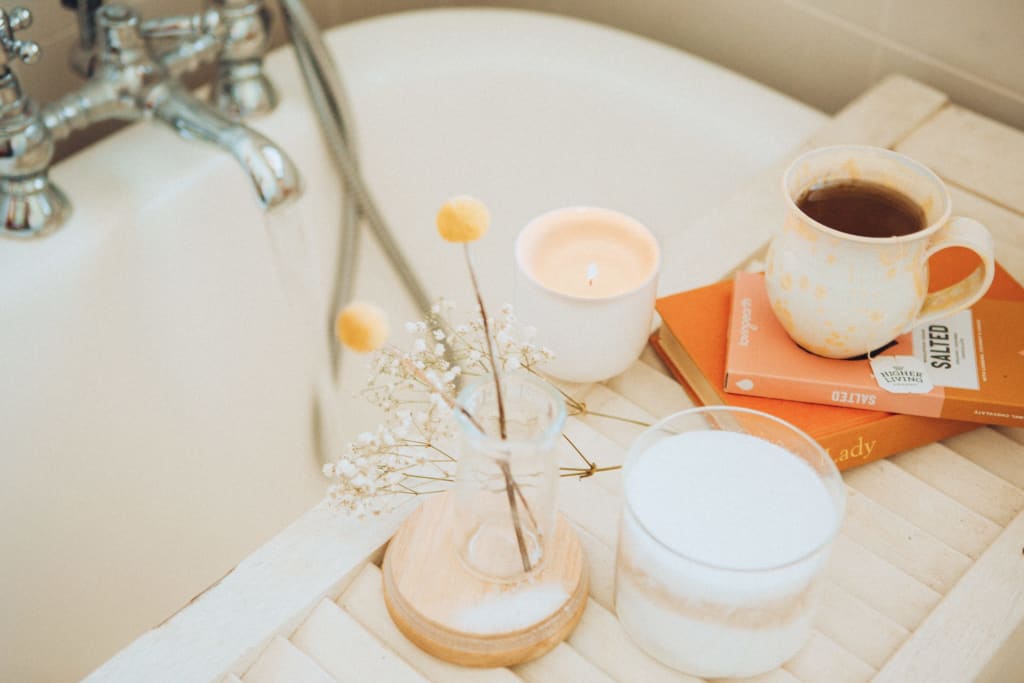
For many folks, crawling under the covers after a long day is among one of life’s great pleasures. Bedtime is seen as a sweet release from the anxieties and stresses of life, not to mention an essential opportunity to recharge the batteries for the next day.
For others, however, sleeping is a major source of dread. For these people, lying in bed provides little more than a chance to pore over all of the responsibilities and tasks they must attend to. As time ticks by and they lie awake fearing the mountain of problems they need to address, their worries might even shift to the thought that they will not be well-rested enough to tackle those challenges.
Enter sleep anxiety: a condition in which obsessive, anxious thoughts make normal falling and staying asleep extremely difficult. This kind of anxiety can lead to serious health problems in both the short and long term if not treated properly. Read on to understand what causes it, and some of the most effective means of treating the disorder.
Worrying about sleep
Researchers and psychologists have noted well-established links between anxiety disorders and poor sleep for a long time. Many studies show that reported nighttime disturbances are much higher in patients with all forms of anxiety disorders.
But specific anxiety disorders are linked to idiosyncratic sleep disturbances. Panic disorder, generalized anxiety disorder and other anxiety-related afflictions are associated with specific negative sleep patterns. Almost all of them are heavily correlated with insomnia, and especially difficulty falling asleep. Obsessive racing thoughts about the pressures of daily life can make it almost impossible to drift off. But it is when those thoughts turn to sleep, or having difficulty sleeping, that the term sleep anxiety comes into play.
In a way, this particular kind of anxiety is a terrible form of self-fulfilling prophecy. When we are so concerned with the fear that we won’t be able to get enough sleep, insomnia can kick in, and we actually do fail to maintain healthy sleep patterns. Furthermore, when we are sleep deprived we are much more likely to exacerbate the symptoms of anxiety that might keep us awake in the first place.
Anxieties surrounding sleep disorders are a common cause
As WebMD reports, sleep anxiety is often related to one’s knowledge that they will be affected by another disorder. Insomnia begets insomnia, as mentioned above, but worrying that your apnea will awaken you later in the night can also cause the type of anxiety that makes it difficult to sleep in the first place.
Another common trigger of sleep anxiety is fear of parasomnias, the odd and terrifying class of sleep disorders which includes sleep paralysis, nightmare disorder, and night terrors. Fearing sleep on the grounds that it might induce extremely unpleasant hallucinations or potentially dangerous nocturnal adventures is certainly understandable. Though ironically, by trying to avoid them and breaking healthy routines, you will put yourself at an increased risk of these incidences.
One of the most important things you can do to avoid the sleep anxiety associated with other sleep disorders is to treat the underlying condition as best you can.
Diagnoses
If you believe you are suffering from sleep anxiety, speaking with a doctor can help you to develop a plan for treatment. While there isn’t a formal diagnostic checklist for sleep anxiety itself, doctors will likely work with you to identify patterns of anxious thinking which can lead to the condition. These may include:
- Constant worrying about things in a way that is “out of proportion”
- Overthinking everything
- Feeling threatened in unthreatening situations
- Fear or discomfort with uncertainty
- Extreme indecisiveness and fear of making bad choices
- Inability to relax or set aside worries
- Difficulty concentrating, accompanied by the feeling of a blank mind
Further questioning might be in order to determine if these thought patterns apply directly to your sleep.

How to treat sleep anxiety
Addressing sleep anxiety is often more complicated than treating any common illness. It is at its core a complex psychological condition whose treatment could involve a combination of lifestyle changes, medication, therapy, and more.
Here are our tips for keeping sleep anxiety in check:
- Treat your underlying anxiety disorder: If you suffer from general anxiety, prioritize treating this condition above all else. Managing anxious thought patterns is the most important key to overcoming sleep anxiety—that will be impossible if you leave a serious anxiety disorder untreated.
- Keep any sleep disorders well managed: The same rule that applies above applies here. Sleep disorders can be serious triggers of the type of worry and anxiety that makes falling and staying asleep difficult. Seek treatment for these conditions as a first step.
- If you take medications, examine side effects: Some medications might keep you up without you even knowing it. If you take medication, especially for anxiety disorders or depression, make sure you are aware of how any drugs might be affecting your nocturnal patterns.
- Eat healthily and exercise regularly: Maintaining a healthy diet and exercise routine will prime your body for the best possible rest. Make sure that you don’t eat or exercise too heavily close to bedtime however, as these activities can be stimulating. On that note, avoid caffeine, nicotine, and other stimulating substances as well.
- Establish a consistent routine: Heading to bed and rising at the same time every day will help train your body to fall into a good rhythm, adjusting its biological clock to usher in sleep easier as soon as the right time comes.
- Find ways to relax before bed: Whether it’s through meditation, listening to Bach or taking a hot bath, finding ways to relax in the evening can soothe your body and mind. Try to keep your mind off of the pressures you face in your day-to-day life, and certainly avoid using your phone or any other screen in the evening directly before bedtime.
- Make your bedroom a place of extreme comfort: Your bedroom should be slightly cool, very dark, and as quiet as possible. If you find that having an alarm clock or other timekeeping devices near you triggers anxiety, take it out of your bedroom. Treat your bed as a temple reserved for sleep, relaxing activities, and sex.